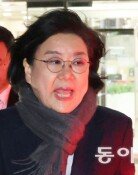Japans Forced Labor Claims Debunked?
Japans Forced Labor Claims Debunked?
Posted February. 20, 2006 03:01,
A document claiming that the Japanese government was deeply involved in the management of Korean laborers who worked in Japan even before the forced labor drafts in 1944 has come to light 10 days ahead of Koreas 87th Independence Movement Day.
The Truth Commission on Forcible Drafting under Japanese occupation announced on February 19 that they acquired a letter written by the Joseon Governor-Generals office encouraging Korean laborers who were working at the Mitsui Sunagawa coal mine in Hokkaido not to go back to Korea and to keep working in Japan by renewing their contracts.
The Japanese government has maintained that they hold no responsibility for abuses committed against Korean laborers who went to Japan before the forced drafts of 1944 because they claim Koreans made contracts with Japanese companies on their own and were not managed at the government level before that date.
Data suggesting the Japanese governments involvement in mobilizing Korean workers by force, using violence to encourage them to enlist or helping recruit other workers to work in coal mines in Japan from 1939-1943, has been found before. But this is the first time that documents confirming the fact that the Japanese government was directly involved in labor management of Koreans have been discovered.
The letter, dated October 1, 1941 in the name of the Joseon Governor-Generals office, reads that the term of a contract for workers who came to Japan in 1939 was expiring soon, and that they should renew their contract and keep working to become good citizens of Japans emperor.
The letter urges Korean workers to abstain from leaving work without permission or striking, and encourages them to move their family to Japan.
The emigration of Korean workers families to Japan was a policy instructed from Japans Department of Interior and National Police Agency to Japanese companies in 1941.
The Truth Commission explained that that the fact that the Joseon Governor-Generas office mentioned the above shows that the Japanese government managed laborers in close consultation with the Joseon Governor-Generals office and Japanese corporations.
This letter was kept by Lee Bong-ok (then 34), who died in an accident in 1942 while working at the Mitsui Sunagawa coal mine, and was sent to his bereaved family with his personal effects. Lees son, Young-su (72), handed the letter in to the Truth Commission recently.
Han Hye-in, an inspector with the Truth Commission said, Because the Japanese government was involved in enlisting, sending, and managing Korean laborers to Japan before the forced labor draft, the scope of the Japanese governments responsibility for coercing Koreans to work in Japan, and its compensation liability will increase.
weappon@donga.com





![“한동훈, 정치생명 걸고 무소속 출마해 평가받는 것 고려할만”[정치를 부탁해]](https://dimg.donga.com/c/138/175/90/1/wps/NEWS/IMAGE/2026/01/19/133186982.1.jpg)

